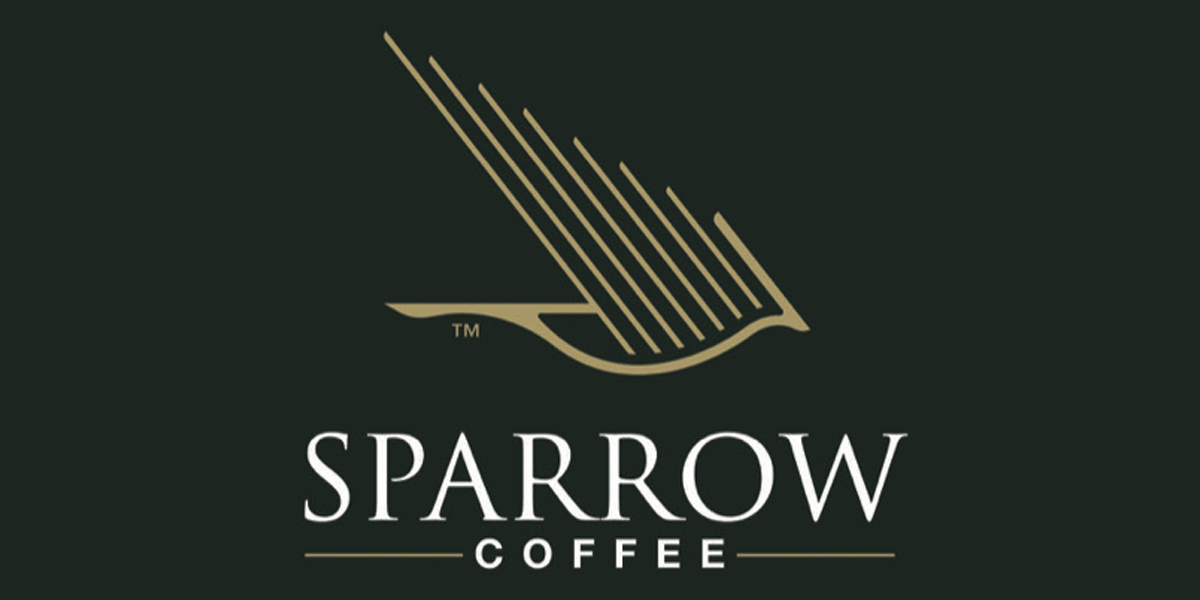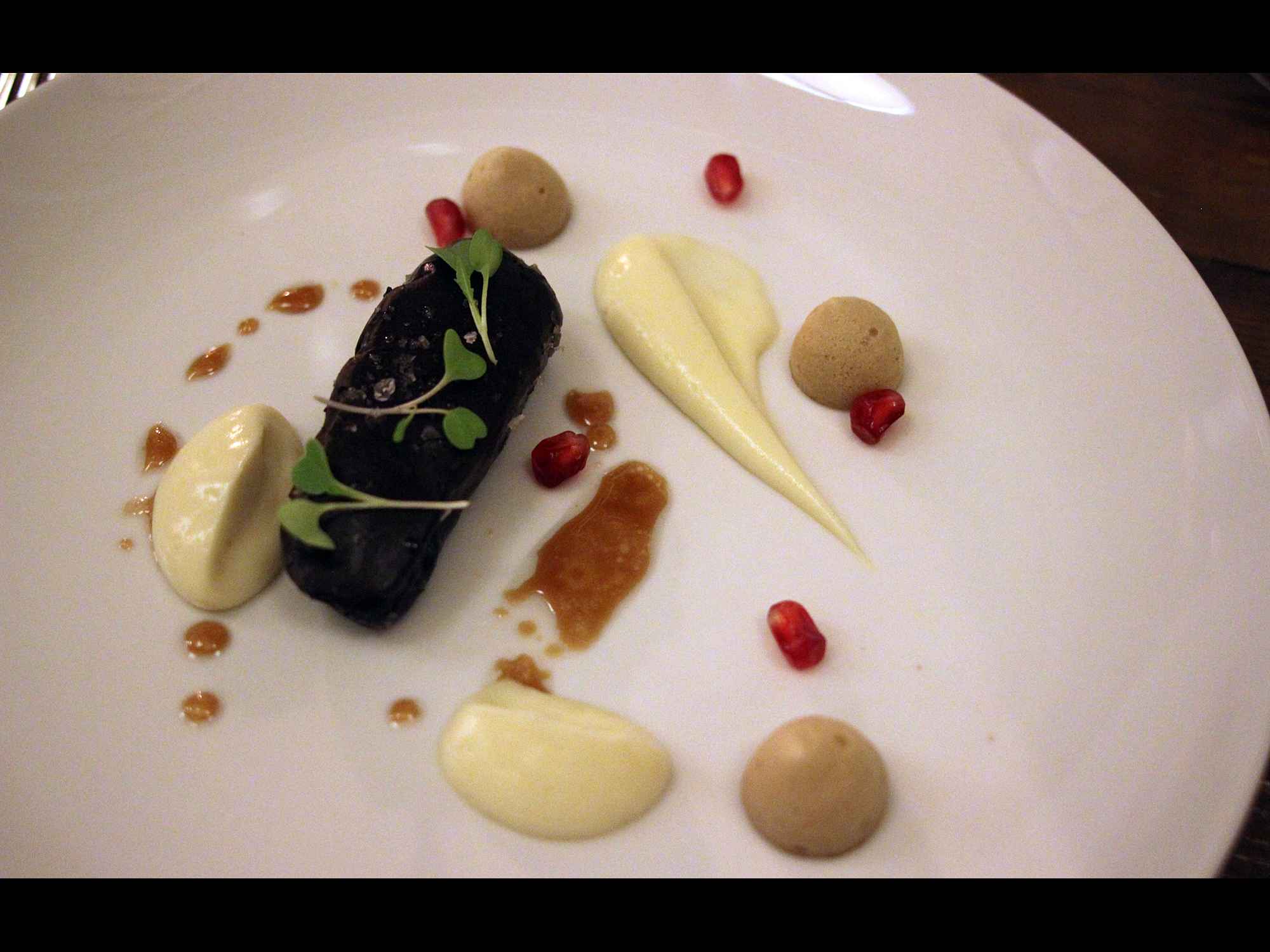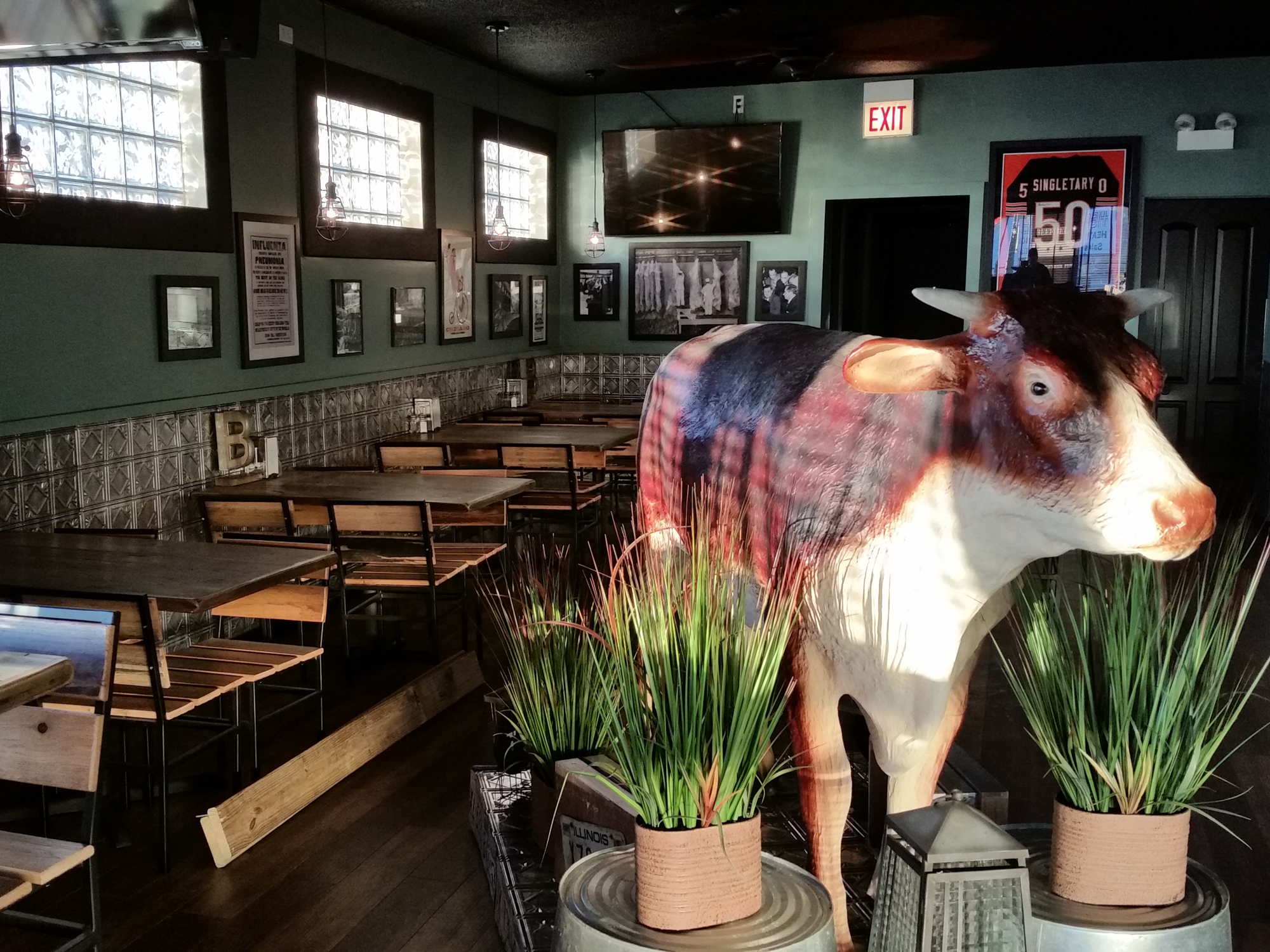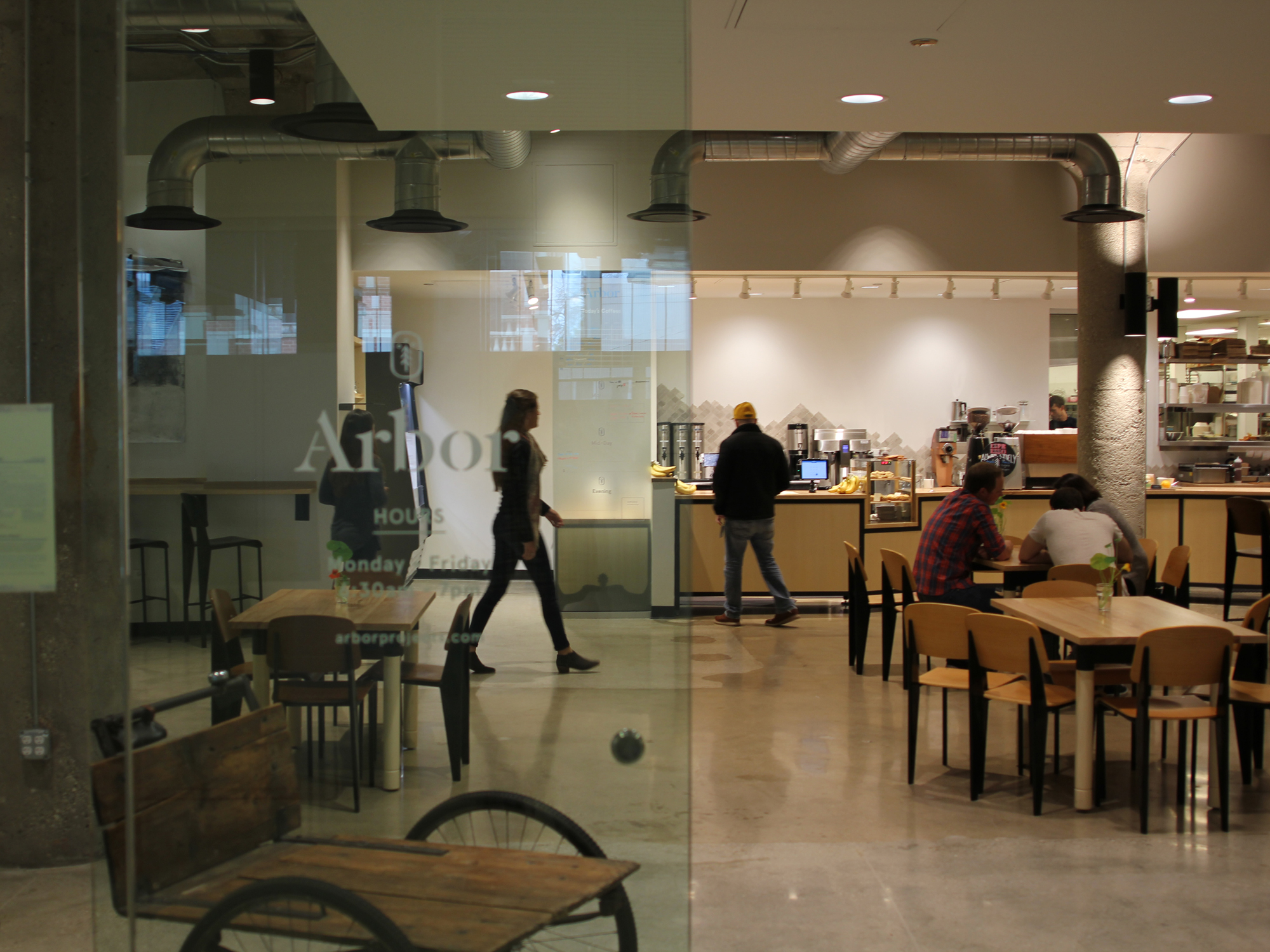BEFORE THE NEWS GOT SERIOUS again, before Paris and all the rest, we were having a good time enjoying the antics of politically overcorrect college students. Yale, alma mater of three of our last four presidents, nearly flew apart over the global threat—not even threat, hypothetical—of inappropriate Halloween costumes. At the University of Missouri, a communications professor gave a master class in trying to violently stifle the press. And in a class by itself was the University of Ottawa, where a yoga class, for the disabled no less, was deemed cultural appropriation and a form of “cultural genocide.” (I always knew my dog was up to something!)
One of the minor ones, but one that stuck in my head, was an article that made the rounds on social media called “The Feminist Guide to Being a Foodie Without Being Culturally Appropriative,” by Rachel Kuo. Mostly it was coming in for derision because it was at a site called “Everyday Feminism,” and the link between ordering Chinese takeout and feminism did not immediately occur to most people. (Ordering Chinese takeout is Lacanian, obviously, people.)
I actually think much of the article is non-ludicrous, in that it has some perfectly valid advice of the Didn’t-Your-Parents-Raise-You-Not-To-Be-Such-a-Narcissist variety. I agree completely with the part that talks about not making your Asian friend be “your food ambassador to all of Asia,” and about not bragging for “adventure points” about the “weird” stuff you’re eating. Whatever weird ingredients other cultures eat, they’re not weirder than roquefort cheese, if you think about it, and there’s no part of a cow you haven’t already eaten at Taco Bell. She’s right that food TV can be hamfisted (“I watch a lot of competitive cooking shows… whenever there is a ‘bizarre’ or ‘exotic’ cooking ingredient, it’s associated with foods from my culture and childhood),” and there is undoubtedly dilettantism among chefs in becoming sudden experts on tacos, and showing off their Latino street cred with all the conviction of Otter shouting “Otis, my main man!”
But this idea of cultural appropriation—the same one that doesn’t want you dressing as a Sexy Ninja or doing yoga—is a real danger to people and our culture if it’s applied to food. I’ve long feared that discussion of food culture was at risk from a political correctness that would make it insensitive and a presumed slur to refer to commonplace cultural differences, or even to acknowledge them at all. That it would become incorrect to refer to a part of town as “Chinatown,” or to note that Mexican restaurants have certain characteristics and Eastern European ones have others. African-American barbecue, which I’ve written about often, seems to already be a touchy point; I’ve been taken to task for noting the existence of the (universal) bulletproof plexiglass carousels in South Side BBQ places, and basically told I had no business even writing about the subject at all.
But this article zooms right past that to an even more dangerous idea: that you not only shouldn’t write, but you probably shouldn’t even be eating there. That eating ethnic food is often just as insensitive and oppressive as wearing a sombrero and yelling “Ay chihuahua, Señoritas, I am ze Underwear Bandito!” at the Jonathan Edwards College Halloween party:
Cultural appropriation is when members of a dominant culture adopt parts of another culture from people that they’ve also systematically oppressed. The dominant culture can try the food and love the food without ever having to experience oppression because of their consumption.
With food, it isn’t just eating food from someone else’s culture. It might not be appropriation if you’re White and you love eating dumplings and hand pulled noodles. Enjoying food from another culture is perfectly fine.
But, food is appropriated when people from the dominant culture – in the case of the US, white folks – start to fetishize or commercialize it, and when they hoard access to that particular food.
It’s really odd that “oppression” should become the central concern about an industry that’s all about immigrants taking control of their own economic destinies through entrepreneurship. Pretty safe to say that the most successful strategem for ending any oppression in America has always been starting a small business… like a restaurant.
Eating other cultures’ foods is good. It benefits all of us, and we should be proud of doing so much of it.
But beyond that, what does this mean in any practical sense? How do you know when your liking for ramen has crossed a line to racist thought crime? You can’t, because anyone can judge anybody else harshly by such nebulous criteria, and there’s no defense. The only safe way to not risk being called racist is by sticking strictly to your own kind’s businesses (which itself begs the question of any of us having one, clearly defined and visible “kind”) and having nothing to do with other “kinds” (same problem). Thus does anti-racism come to define itself by validating the noxious principles behind racism.
But enough undergraduate philosophizing. You know who never thinks that the answer to oppression is not patronizing businesses owned by allegedly oppressed people? The people who actually own those businesses. You will not be surprised to learn that Ms. Kuo is an academic, and not the owner of Golden Lucky Dragon Chinese Food and Sushi Bar who will be happy to ring up your $50 worth of food and have Cousin Hu deliver it to you. In fact, that lady pretty much depends you doing that to lift her family up in the world and pay for the next generation to go to college. (O irony.)
IF THESE ARE THE ARGUMENTS BEING made which could have real cultural impact, they’re going to hurt small ethnic and immigrant businesses. And we need to stand up against those arguments now, and state clearly:
Eating other cultures’ foods is good. It is morally better than not eating them. It benefits all of us, and we should be proud of doing so much of it.
It is better because food is the first place where cultures meet each other, and the fastest act of greeting and welcome and signaling benign intentions is sharing food. This business of crossing paths over food doesn’t perpetuate barriers—it’s exactly what breaks them down. It isn’t oppression, it’s the answer to oppression, which allows small business owners to improve their place in a new country, which is why they came here. You’re helping them achieve exactly what they want from life. Feel good about it!
Maybe you’ll do it in a clumsy way. Maybe you’ll put Thai peanut sauce on everything, as I did when I first moved here, or take a long time to get that tacos with cilantro and onion are better than burritos bigger than your head with cheese and sour cream. Maybe you’ll scarf down lumpia without a full awareness of the history of colonialism (in fact, I’ve seen my kids do exactly that, shame). Maybe your patronage will lead people to become Susie Wong caricatures of their culture, to put Tony Soprano on the walls of the pizzeria. That’s too bad, though happily it seems to be getting rarer; but even so, by patronizing them you are being receptive to the possibility of learning about other people on this Earth. And if my people produced anything worth eating besides pfeffernusse, I’d share it with you, too, in the same spirit.
In short, eating at such restaurants and breaking down that barrier in a polyglot city like Chicago isn’t the cause of everything Ms. Kuo laments. It’s the solution. Do it today!
Michael Gebert is editor of Fooditor and likes everything and everybody, except noodles and prunes. He suggests that if you want to find ethnic food, start with Fooditor’s Destinator tool.
Latest
Join the Discussion
After you comment, click Post. If you're not already logged in you will be asked to log in or register with Disqus.






